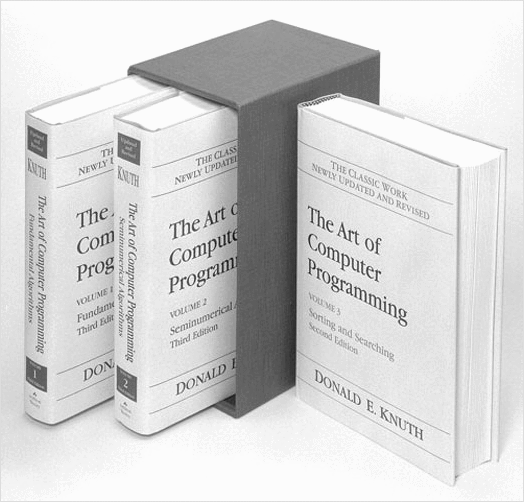Liberate your documents

from: http://www.redhatmagazine.com/2007/07/25/odf-the-inevitable-format/
ODF: The inevitable format
by T. Colin Dodd
In 1999, a scientist wanted to look at some data from soil samples collected on Mars in 1975 by the Viking lander. He wanted to test a theory about detecting the existence of Martian bacteria and microbes–in other words, finding life on Mars. The scientist thought he would find what he needed on a NASA website somewhere, but it wasn’t that easy. The original data had been misplaced, and when the huge magnetic tapes that stored the data were found, they were “in a format so old that the programmers who knew it had died.” Someone finally found a ream of paper printouts propping a door open and humanity’s understanding of the universe expanded a bit more. The tragic sense that would have accompanied the loss of this knowledge is echoed in accounts of the destruction of the Library at Alexandria, and probably why book-burnings are seen as a sure sign that a society is unhealthy
Of course, not all lost or inaccessible data holds clues to life on Mars, and not every shred of information needs to outlive its creator. Many unreadable documents will never be missed, but responsible public policy demands that government documents–contracts, deeds, or court records that remain in force for decades or even centuries–must be archived and accessible. Whatever the case, when data is stored and shared on legacy or defunct proprietary formats, over time it will either become expensive to access or disappear entirely.
When it comes to digitally creating, sharing, and storing documents, the technology to prevent format-based decay already exists and is in wide (and growing) use. It’s called the Open Document Format (ODF) and if you’re not currently using it, someday you will.
The ODF, an XML-based document markup language, was first developed in 1999 by Stardivision and then by Sun Microsystem’s Openoffice.org project. Conceived as an open alternative to the proprietary document handling software, which then dominated the world, the driving force behind the ODF was the need for a vendor-neutral document format independent of any single application, readable and writable for all, without any royalty of licensing “encumbrances.” It was promoted on the basis that business and taxpayers would save money. An open format would create competition in the document application sphere. All documents could be read and shared by everyone. Nothing could be lost to time or changes in proprietary code or licensing requirements. Matters of great public interest - census data, weather data, public health statistics, investigative reports, court records and basic scientific research, all paid for by taxpayers, would no longer be encoded on a single, proprietary closed-standard format, requiring citizens to pay twice for access to their own information. Using ODF, proponents said, would keep public documents public.
The Organization for the Advancement of Structured Information Standards (OASIS) was formed in 2002 to standardize the format, which was recognized by the International Organization for Standardization (ISO) in 2006. The Open Document Format Alliance was formed in March of 2006 to promote the format, making the public, legal and political case for the adoption of open technology standards to governments and public institutions.
“Red Hat was a founding member of the ODF Alliance and Tom Rabon [Vice President of Corporate Affairs] serves on the executive committee,” says Stephanie McGarrah, outgoing Red Hat Public Policy Manager. “Red Hat works with other executive committee members to coordinate efforts to talk with governments around the world about ODF.”
Although the ODF was launched with a great gust of common sense blowing at its back, the momentum of widespread adoption has been hindered by bureaucratic inertia, local politics, persistent misconceptions (reinforced by opponents) about ODF’s viability and the “dangers” of adoption. Most of the fear, uncertainty and doubt has emanated from one source, on whose proprietary formats most of the world’s documents currently reside.
Opponents of the ODF do not concede its inevitable adoption, and actively lobby against it. It’s not that anyone is against the ODF in and of itself, or finds any real reason to question its necessity. The logic behind the ODF and the transparency of its creation is fairly unassailable. Rather, it is the open standards on which the ODF is based that are most attacked. From the detractors’ point of view, things are just fine the way they are now. The “standard” is theirs. They own the document “market,” and think of it as “territory” they “won” fair and square. They can’t foresee a future without them (that’s not in their business plan), and as long as everybody is already using their applications and formats, why change? Opponents of the ODF devote considerable resources to lobbying legislatures and executive branch IT advisory boards in an attempt to convince them that the adoption of the ODF actually limits choice and harms market-driven efficiency by “locking out” vendors like them. They say migration is expensive, and even argue that adoption of the ODF will limit public access by cluttering the environment with too many “incompatible” formats. And who really trusts all this “free stuff,” anyway?
But proponents like the ODF Alliance have arguments of their own, and most of them come from “Actually, the opposite is true…” school of refutation.
The ODF Alliance contends that open standards actually promote choice and vendor competition by leveling the playing field. The standard is open and freely available for anyone to implement. There is no competition over the format, just the application used to handle it. In this universe, the best applications win. The ODF alliance also points out that implementing or migrating to ODF is no more complicated or costly than periodically upgrading from one version of a proprietary application to the next, and by obviating the need for future upgrades, real money is saved over time. As for accessibility, Open Office (and other ODF-compliant applications) are freely down-loadable and ready to use now. There are no actual compatibility issues, they say, only non-cooperation issues.
“I think that some governments either aren’t aware of ODF or don’t have the technical staff in place who understand the value of ODF,” McGarrah explains. “So, it’s the alliance’s job to spread that message to the people in government who make those decisions.”
But the unshakable argument in favor of using ODF for public documents is the fact that it’s a better deal for citizens and taxpayers in the long run. Using closed-standard, proprietary software for public documents is like buying the proverbial $10,000 toilet seat, or prohibiting the federal government from negotiating better drug prices with pharmaceutical companies on behalf of Medicaid and Medicare patients, or trying to feed an army and rebuild a warzone by awarding secret, non-competitive, no-bid contracts. It’s non-competitive in the worst sense.
Despite opposition, adoption of the ODF is making slow but inexorable headway, and as a greater understanding of the issue is reached by policymakers, the ODF will challenge the standing ubiquity of proprietary formats. Moving the issue forward, Japan recently required that all its ministries contract with software vendors whose applications are built around open standards. Brazil, Poland, Malaysia, Italy, Korea, Norway, France, The Netherlands, Denmark, Belgium, The Commonwealth of Massachusetts, and the Dehli State Government in India have all made commitments in principle to adopting the ODF and, perhaps more importantly, recognizing the imperative of using open standards. The ODF Alliance continues to arm and enlighten policy-makers with the information and tools they need to make recommendations and change policy, but no one promoting the ODF think its widespread adoption is imminent. It will take time.
“These decision makers have a lot of other issues to deal with (i.e. Health care, education, transportation, poverty…) so technology decisions aren’t usually at the top of their lists,” says McGarrah. “Progress has been made on the wider adoption of ODF. Several governments have adopted ODF and are working to implement the standard, but there is a lot of work to do.”
More information
Spread the word, share this ODF artwork by Michael Pittman
This entry was posted by T. Colin Dodd on Wednesday, July 25th, 2007 at 2:01 pm

